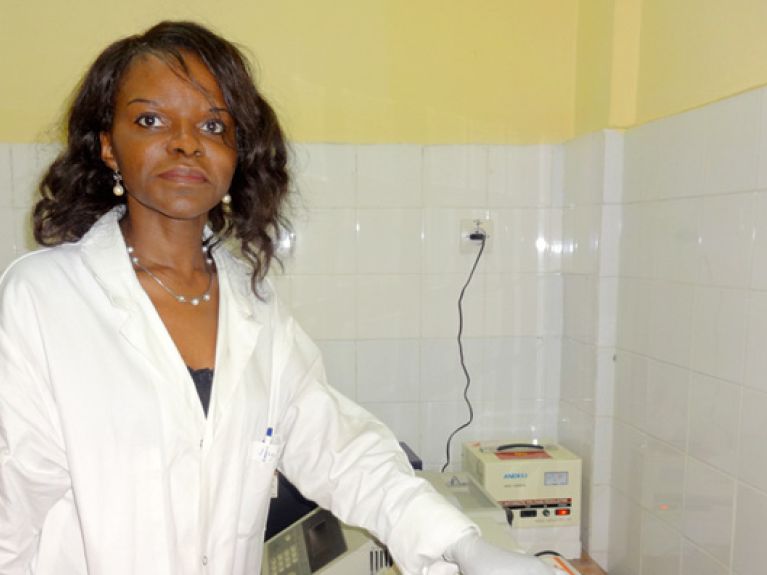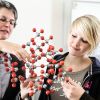“I pass on my knowledge”
The Congolese molecular biologist Francine Ntoumi has founded the Republic of Congo’s first molecular biology laboratory with support from the University of Tübingen. In the interview she explains why the partners complement one another.

Ms Ntoumi, how did malaria come to be the focus of your research?
I initially studied in France where I obtained my PhD and qualified as a university teacher. When I returned to Africa, I wanted to focus on a research area that is of importance to the people of my country. Thousands of Africans die from malaria every year. I not only want to fight this disease but also raise the standard of scientific training to enable us to catch up.
What are the biggest differences between the Republic of Congo and Germany in terms of research?
The situation in Congo probably resembles that in Germany about 25 years ago. The difficulties start with the fact that we don’t have a properly functioning Internet. That makes it hard for Congolese students to keep abreast of current research. I want my students to be able to work at the same scientific level as their German colleagues. That’s why it’s important to me to work here in Congo and at the same time have one foot in Germany. It enables me to serve as a bridge.
What sort of work are you doing at the Institute of Tropical Medicine in Tübingen?
The standard there is very high and I’m doing things I can’t accomplish in Congo. The close cooperation benefits both sides because the institute in Germany has, of course, no direct access to tropical diseases and the required samples. It’s a process of genuine scientific exchange and our work is a very good fit.
What concrete form does this cooperation take?
I’ve founded the country’s first molecular biology laboratory at the university in Congo’s capital Brazzaville. That was only possible with the support of my colleagues in Tübingen. They offered me advice and were always available to answer questions. Now we are demonstrating that we’re also in a position to conduct sophisticated research.
What can the partners learn from each other?
The Republic of Congo still lacks a research culture. In Germany, it’s also quite normal for students to express their opinions and engage in debate. In Congo, the importance of exchanging ideas is not yet properly appreciated. But research is all about new ideas, and debate is a necessary part of it. Another factor is that our researchers are very isolated in their work. They are not used to exchanging ideas with colleagues or forming teams. I pass on the experience I’ve gained in Europe to researchers back home. ▪
Interview: Gemma Pörzgen
PROFILE
Professor Dr Francine Ntoumi has had strong ties with Germany for a number of years. Since 2000, the 53-year-old leading Congolese researcher has been working closely with the University of Tübingen’s Institute of Tropical Medicine. The prominent molecular biologist has won the Alexander von Humboldt Foundation’s 2015 Georg Forster Research Award and now wants to step up cooperation with the university in Germany. For her scientific achievements in the fight against malaria and in improving research conditions in Africa, she received the 2012 African Union Scientific Award for the continent’s best woman scientist.

